Welcome to the June 2019 issue of the Global Washington newsletter.
IN THIS ISSUE
- Letter from our Executive Director
- Issue Brief: How Can Wildlife Conservation Support Human Development?
- Organization Profile: Informing Change: Vulcan’s Data-Driven Approach to Conservation
- Goalmaker: Alejandro Grajal, President and CEO of Woodland Park Zoo
- Welcome New Members
- GlobalWA Member Events
- Career Center
- GlobalWA Events
- Global Leadership Forum
Letter from our Executive Director
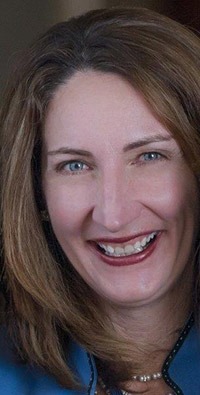
A UN report in May raised alarm about an increasing rate of species going extinct globally, with nearly 1 million plant and animal species at risk. It may be tempting to give up in the face of such overwhelming numbers. But the leaders of two Global Washington member organizations, the Woodland Park Zoo and the Seattle Aquarium, reminded us in a recent Seattle Times op-ed that “…we are not too late to act.” In fact, now is the time to accelerate the progress we have already made, and to look for new opportunities for transformational change when it comes to conserving life below the water (SDG 14) and life on land (SDG 15).
Global Washington’s latest issue campaign examines how wildlife conservation intersects with human development. Last week, Global Washington supported an event organized by the World Affairs Council, focused on local organizations that are leading the world in efforts to combat illegal wildlife trafficking. In this month’s issue brief we explore the various strategies that our members and others are using to protect endangered animals and the natural resources that we all depend on. Our Goalmaker this month is Alejandro Grajal, President and CEO of Woodland Park Zoo, and our featured organization is Vulcan, whose data-driven solutions to conservation reflect founder Paul Allen’s commitment to technology as a force multiplier for change.
I hope you enjoy this month’s issue as a bit of summer reading. Not only are the animals adorable, but the fact that their fates and ours are so closely entwined means that in helping them, we are also helping ourselves.

Kristen Dailey
Executive Director
Issue Brief
How Can Wildlife Conservation Support Human Development?
By Joanne Lu
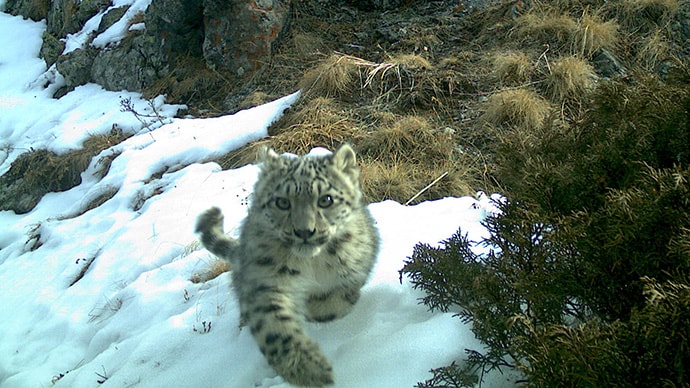
Photo provided by The Snow Leopard Trust.
Conservation and human development are often presented as two separate issues with little overlap: one promotes the wellbeing of our planet and other species, while the other cares for people. But a new UN assessment is warning that a million plant and animal species are at risk of extinction within decades – and it’s threatening human life, as well.
Regardless of whether we live in wealthy or poor countries, our fates as humans are inextricably tied to those of other species. Together, we inhabit ecosystems that supply us with basic services such as food, water and air. Just in the Americas alone, natural ecosystems provide humans an estimated $24 trillion worth of economic value every year, equivalent to the region’s entire gross domestic product.
But even though the earth is supplying people with more food, energy and materials than ever, the UN report says that the activity of more than 7 billion people is altering our natural world at a rate that is “unprecedented in human history.” Increasingly, our farming, fishing, poaching, logging and mining are undermining nature’s ability to continue to provide those very things for us in the future, in addition to other services like water quality regulation.
At the same time, global warming caused by our activities is further driving some wildlife toward extinction. Already the world is 1 degree Celsius warmer than pre-industrial levels. If that increases to 2 degrees, the report estimates that about 5 percent of species globally are at risk of climate-related extinction. If temperatures continue to rise to 4.3 degrees above pre-industrial levels, the existence of 16 percent of species will be threatened.
As cohabitants of our environment, it is our human responsibility to respect and protect wildlife. But we also need them to thrive in order for us to thrive. We depend on them as food supplies, pest control, pollinators, medicine, genetic resources and centers of tourism. Our fates are so entwined with wildlife and their habitats that the UN report estimates that the current negative trends will “undermine progress towards 80 percent” of the Sustainable Development Goals relating to poverty, hunger, health, water, cities, climate, oceans and land.
“Our wildlife is not an optional extra, but the basis upon which all our livelihoods and progress depend,” the late Bradnee Chambers, Executive Secretary of the Convention on Migratory Species, said in 2017. “Only by integrating wildlife conservation with sustainable development will we be able to protect the remaining species on Earth, species from which we benefit in so many different ways.”
![]()
That’s why organizations like Vulcan support work in Zambia to protect wildlife from poaching, trafficking, and loss of habitat, as well as to prevent human-animal conflicts. As the human population around South Luangwa National Park increases with development of the area, so, too, there’s been an increase in community conflicts with elephants that are raiding crops and damaging properties. By engaging with the local communities, Vulcan and its partners are finding ways to mitigate these conflicts in ways that protect both the elephants and the farmers. Interventions include elephant restraining fences, chili peppers as a deterrence, watch towers and elephant-safe grain stores. In addition, Vulcan used its technology to help compile the Great Elephant Census, the first aerial survey in 40 years of African savanna elephants across the continent.
Similarly, the Snow Leopard Trust works closely with local communities to protect the endangered and elusive snow leopard and its mountain habitat. Established in 1981 by a staff member of Woodland Park Zoo, the Trust was one of the first conservation organizations to make the economic and social needs of communities in the snow leopard’s habitat part of their conservation solution.
The Snow Leopard Enterprises program, for example, creates economic opportunities (handicraft businesses) for herder women in snow leopard habitats. This financial boost makes families more economically resilient to the occasional loss of livestock to snow leopards. In turn, herders are less inclined to retaliate against the snow leopards. Additional cash bonuses are also awarded to communities if they uphold their conservation commitments.
Woodland Park Zoo continues to partner with the Snow Leopard Trust and supports its conservation programs in Kyrgyzstan. The Zoo carries out other conservation work, as well. Its flagship program works to protect tree kangaroos in Papua New Guinea (PNG) using a community-based strategy similar to what the Snow Leopard Trust employs. In 2009, the Zoo celebrated the PNG government’s approval of a tree-kangaroo habitat as a conservation area with the highest level of protection, including against any form of resource extraction. Since then, the program has been empowering indigenous communities to take on the long-term, sustainable management of the area.

Ecki, a young Matschie’s Tree Kangaroo born at Woodland Park Zoo. The zoo’s Tree Kangaroo Conservation Program preserves tree kangaroos’ natural habitat in Papua New Guinea’s Huon Peninsula and supports livelihoods of the indigenous people there. (Photo: Jeremy Dwyer-Lindgren/Woodland Park Zoo).
This vision of human development alongside conservation has birthed some unlikely partnerships. Recently Americares, an organization best known for its donations of medicine and medical supplies, launched a partnership with African Parks to provide comprehensive health care for the communities that live in and around conservation areas. African Parks manages 15 wildlife parks in nine countries, but the partnership will begin by serving nearly 100,000 people near two of Malawi’s most important conservation areas.
Conservation efforts are also required thousands of miles away from the habitats of endangered and threatened species. Organizations like Fair Trade USA and Earthworm (formerly The Forest Trust) work with companies to ensure that their sourcing and production don’t harm wildlife habitats. Among its other efforts to promote environmental sustainability, Fair Trade USA partners with Conservation Alliance for Seafood Solutions, which provides businesses expertise and tools for furthering their commitments to sustainable seafood.
Earthworm uses tools like High Conservation Value (HCV) and High Carbon Stock (HCS) forest assessments to help guide activities away from important wildlife areas. It also carries out work on the ground to help mitigate human-animal conflicts in Malaysia, for example, or to teach palm oil plantation companies how to protect orangutan habitats.
These organizations are all taking important steps toward protecting the biodiversity of our planet. Still, the UN assessment warns that the Sustainable Development Goals for 2030 may only be achieved through widespread “transformative changes” in the ways we produce and consume everything from energy to food to water to materials.
That’s why organizations like the Seattle Aquarium and Woodland Park Zoo are so committed to inspiring conservation at home. By providing visceral experiences, education, and tools for the public to participate in conservation, as well as their own commitment to conservation principles, these organizations aim to transform how the broader Seattle community views and interacts with life all around us. Changing that perspective is the first step to making conscious choices that move us toward sustainable development – not only for humans, but for our whole world.
* * *
The following Global Washington members are working at the intersection of conservation and human development.
Americares
Americares understands that the health of humans and the health of the natural environment are inextricably linked. In May 2019, Americares announced it would be teaming up with wildlife conservation organization, African Parks, to strengthen the capacity of local health centers providing care to people living in and around Africa’s protected areas. The partnership launched in Malawi, where Americares and African Parks will improve access to health care at four health centers, serving nearly 100,000 people near two of Malawi’s most important conservation areas—Liwonde National Park and the Majete Wildlife Reserve—both of which are managed by African Parks on behalf of the Malawian Government. The new partnership will allow the organization to carry out its mission with vulnerable populations living in close proximity to wildlife while advancing conservation efforts that protect ecosystems and benefit communities. americares.org
Earthworm
Earthworm is a global non-profit organization that works with companies and other stakeholders to make value chains an engine of prosperity for communities and ecosystems. Active in key commodity producing regions around the world, Earthworm helps companies to ensure that their sourcing and production does not impact wildlife habitat, including that of endangered and threatened species. Tools such as High Conservation Value (HCV) and High Carbon Stock (HCS) forest assessments help guide development activities away from areas that are important for wildlife. In several regions, Earthworm works directly on specific wildlife management challenges. For example, in East Kalimantan, Indonesia, Earthworm staff have trained palm oil plantation companies and others on how to better protect orangutan habitat. In Sabah, Malaysia, Earthworm is working with farmers, plantations, and government authorities to find solutions for mitigating human-elephant conflict in areas where elephants roam beyond the boundaries of protected areas. earthworm.org
Fair Trade USA
Fair Trade USA is a non-profit organization that promotes sustainable livelihoods for farmers and workers, protects fragile ecosystems, and builds strong, transparent supply chains through independent, third-party certification. Its trusted Fair Trade Certified™ seal signifies that rigorous standards have been met in the production, trade and promotion of Fair Trade products from over 50 countries across the globe. FairTrade partners with Conservation Alliance for Seafood Solutions, a leading conservation group, with the goal of improving ocean health and ensuring a long-term supply of seafood. fairtradecertified.org
Global Family Travels
In partnership with non-profit organizations and schools, Global Family Travels provides sustainable travel itineraries that foster cross-cultural understanding and align with the UN Sustainable Development Goals, including SDG 15: Life on Land, SDG 6: Clean Water and Sanitation, and SDG 4: Quality Education. For example, families might elect to travel to Zimbabwe in support of conservation of the African Painted Dog. globalfamilytravels.com
The Snow Leopard Trust
The Snow Leopard Trust aims to better understand the endangered snow leopard, and to protect the cat in partnership with the communities that share its habitat. The organization has programs and staff in the five countries in Central Asia that together contain over 75% of the world’s population of wild snow leopards. With support from around the world, the Snow Leopard Trust encourages and empowers people who live in the cat’s habitat to help protect their local wildlife and ecosystems. snowleopard.org
Resonance
Resonance is a global development consultancy that harnesses the power of collaboration to enable communities, companies and governments to drive market-based solutions to global challenges, including in natural resources conservation. In East Africa, Resonance worked with conservation stakeholders on two key partnerships: One was designed to reduce illegal wildlife poaching and trafficking through a reporting and enforcement technology platform; the other helped tourist lodges and hotels source food and services locally. Additionally, Resonance worked in SE Asia to mobilize private-sector resources and investment to strengthen sustainable fishing practices and diversify economies in coastal communities. In the Philippines, Resonance developed a national enforcement partnership between a telco, Microsoft, maritime law enforcement, and fishing communities to reduce illegal fishing, resulting in 10,000 reports, and a seizure of more than 4,000 pieces of contraband. resonanceglobal.com
Seattle Aquarium
The Seattle Aquarium is a respected authority on the Salish Sea, Washington Coast and greater Pacific Ocean, and serves as the largest platform for ocean conservation and engagement in the Pacific Northwest. Through emerging partnerships and community programming the Aquarium is fostering an emerging ocean ethic, increasing awareness and taking action to help preserve and protect our marine environment. The Aquarium offers a unique window into ocean conservation by offering: compelling exhibits and event experiences; education programs for people of all ages and backgrounds; community outreach to underserved communities; conservation research that advances understanding and improves management of marine species; advocacy and policy work; an award-winning volunteer program; and more. Guided by our mission of Inspiring Conservation of Our Marine Environment, the Aquarium has reached over 27 million visitors, two million school children and is taking on the awesome responsibility of protecting our one world ocean and the amazing creatures that call it home. seattleaquarium.org
Vulcan
Vulcan Inc. pursues initiatives and projects that seek to change the trajectory of some of the world’s most difficult challenges. Vulcan works to improve our planet and support our communities through catalytic technology, philanthropy, scientific research, story-telling and commercial ventures. Founded by technologist and philanthropist Paul G. Allen, Vulcan continues to develop and grow the ideas about which he was passionate. vulcan.com
Woodland Park Zoo
Woodland Park Zoo saves species and works to inspire everyone to make conservation a priority in their lives. The Zoo supports conservation programs in over 30 landscapes around the world, with a strategy aimed at habitat and species conservation, research, education, local capacity building and community management. This includes multiple conservation projects here in the Pacific Northwest, from monitoring wolverine recovery in the Cascades to bringing back the northwestern pond turtle from near extinction. Internationally, Woodland Park Zoo’s Tree Kangaroo Conservation Program has worked with indigenous communities in Papua New Guinea since 1996 to protect the endangered tree kangaroo and its rain forest habitat. In 2009, the Zoo partnered with 50 communities to create the country’s first-ever community managed Conservation Area. The program is successfully working with community members on scientific research, land-use mapping, education, health, and directly improving livelihoods through the international sale of conservation YUS coffee, which can be purchased right here in Seattle. zoo.org
Organization Profile
Informing Change: Vulcan’s Data-Driven Approach to Conservation
By Amber Cortes
Empowered by Paul Allen’s vision to make a positive difference in the world, Vulcan shares a commitment to improving our planet. As Vulcan looks to tackle some of the world’s hardest problems, it asks, “What solution should exist that doesn’t?” This question has led Vulcan to develop and deploy a range of solutions to help with the protection and conservation of wildlife, ocean health, and their ecosystems, including EarthRanger, Allen Coral Atlas, Skylight, and the Great Elephant Census.
Based on his time at Microsoft, Allen had the power to change things on a global scale, and as a billionaire, his philanthropic impact could be felt on a scale far and wide.
But Allen was a pragmatist at heart, so he wanted to be realistic. That meant he had to focus on not just any kind of global problems, but certain kinds of problems—ones that have an ‘accelerating curve’ of urgency to them, and come with only a limited window of time to figure out solutions.
“In other words, what that means is that the longer we wait to try to solve those problems, the harder it becomes to solve them,” says James Deutsch, director of biodiversity and strategy at Vulcan. “And that’s obviously true about climate change. But it’s also true, for example, about biodiversity loss or disintegration of natural marine ecosystems.”
A recent UN assessment said that due to human-induced changes to the natural environment, around 1 million species already face extinction, and that “…there will be a further acceleration in the global rate of species extinction, which is already at least tens to hundreds of times higher than it has averaged over the past 10 million years”—unless action is taken.
As an avid scuba diver and lover of nature, Allen saw the destruction of wildlife and marine ecosystems for himself—like the mass coral bleaching that caused half the Great Barrier Reef to die. He also recognized that the economic consequences tied to the loss of coral reefs could cost up to $1 trillion globally, and decimate local economies.
Allen, who, together with Bill Gates, helped revolutionize the world with Microsoft, knew better than anyone that tech and data-based solutions could help solve complex global problems in ways that struggles for policy change alone could not reach.
For example, Vulcan initiated the Great Elephant Census after China and Japan
started loosening some of their restrictions on the sale of ivory. Elephant poaching in Africa accelerated in response to the new demand—and by 2013, conservationists on the ground in Africa knew there was a poaching crisis. But anecdotal evidence was not enough to convince the international community that there was a problem.
The Great Elephant Census was the first ever effort to count all of the elephants in the African Savannah—spanning three years, costing about $7 million, and involving 20 governments and multiple NGO partners to carry out the surveys.
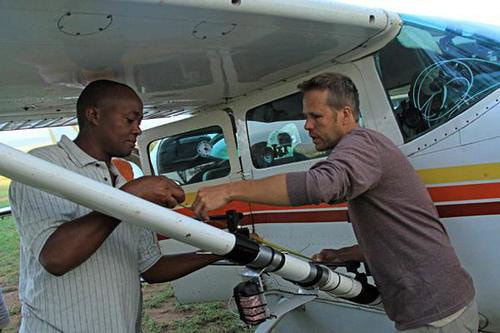
The census proved there had been an alarming decline in elephant populations, directly linked to poaching. And according to Deutsch, the real power of the data was that it was quantitative, not anecdotal, so it forced people to look at the truth—and take action.
“It provided crystal clear results that over the previous seven years, the population of elephants had declined by 30%. And people couldn’t hide from that data,” says Deutsch.
The results of the census reinforced the work of many partners, from the U.S. government to conservation NGOs, to persuade the International Union for Conservation of Nature (IUCN) and the Convention on International Trade in Endangered Species (CITES) to agree that all nations should close their ivory markets. In 2016 China announced a shutdown of all ivory trade within its borders.
The ripple effect of The Great Elephant Census worked locally, too, resulting in significantly increased government clampdowns on illegal wildlife destruction in Tanzania and Mozambique (two countries shown to be at the ‘epicenter of poaching’), and renewed conservation efforts in places like West Africa’s W-Complex of parks, where elephant populations were doing surprisingly well.
One important role data technology can take on in the fight against wildlife loss is centralizing information for a quick, organized response. For example, national parks in Africa were not getting real-time information to ranger patrols. So Vulcan developed EarthRanger—a comprehensive software program for tracking wildlife, rangers, vehicles, and poaching incidents and integrating that information for park managers on a single big screen to optimize their deployment of rangers and decision-making.
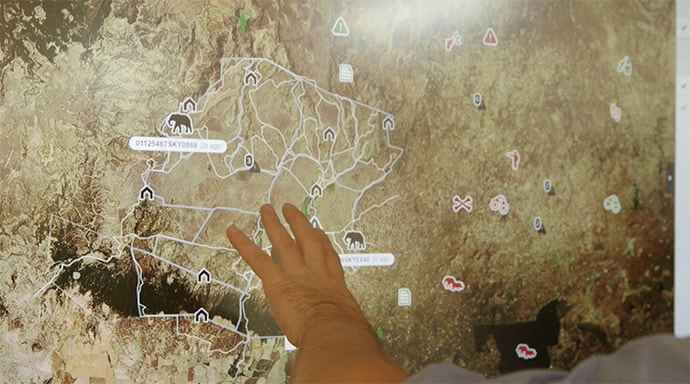
EarthRanger is now active in 14 parks in Africa (with plans for global expansion). But its success only happened because researchers spent time in the field asking people who were trying to protect wildlife in parks what tools they needed to do their job better. In fact, Vulcan spends a significant portion of time and energy on the R&D phase for its philanthropic projects—which is just what any tech company would do to guarantee the best user experience for its product.
For example, The Allen Coral Atlas is the first global mosaic map of the world’s coral reefs, developed because there was no one map of coral reef damage across the world—just a handful of institutions, communities, and researchers who were mapping and monitoring their own reefs on a local level, which was expensive and often cumbersome. With the advancement of satellite technology, Allen saw potential.
The Allen Coral Atlas is meant to be an all-purpose tool for researchers, divers, universities, governments, and scientists alike. That means that, in terms of user experience, there are lots of different uses—and potential users.
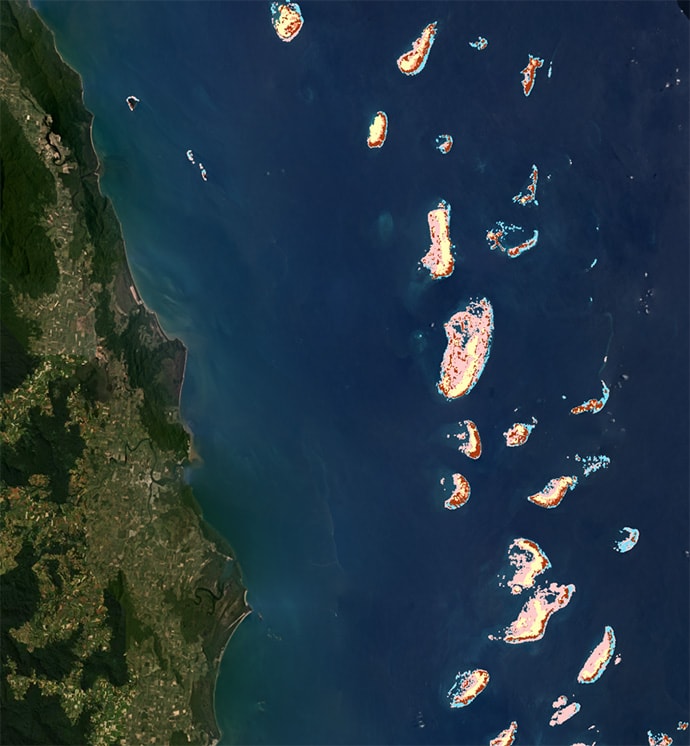
“It’s a really interesting hybrid process that includes a good deal of traditional philanthropy and science, but then really intensive user research and interviews to figure out what the people doing the work in their communities, like coral reef restoration, need,” explains Deutsch.
Similarly, Allen recognized that the new higher resolution satellites being launched into space could provide better data for combatting another global biodiversity challenge—the theft of fish by illegal international trawlers from some of the poorest countries in the world. That led to Skylight, launched in 2017, a real-time, AI-powered system for alerting developing countries and their NGO partners of illegal fishing activity in their territorial waters and protected areas.
Vulcan’s technology and data projects take advantage of the tremendous pool of talent in Seattle and partnerships with the tech sector. But it’s not just issues abroad that get Vulcan’s attention. On the local front, Vulcan has donated millions to support statewide conservation efforts. For instance, Vulcan helped get I 1401, an anti-trafficking statewide ballot measure, passed in Washington state in 2015.
“And that was a really interesting case in which I think Paul and Vulcan felt that there was a moral imperative to get our own house in order on this international issue. And not to be part of the problem ourselves as a community,” says Deutsch.
Deutsch adds that Vulcan’s local conservation efforts can serve as a model of leadership—and not just in the philanthropic realm, but across other business sectors, as well. Vulcan Real Estate, for example, was the world’s first salmon-safe accredited developer.
Climate change and the unprecedented decimation of wildlife and natural systems by human activity are daunting, huge problems that seem impossible to stop. But for someone who works on giant global issues like the environment and public health, Deutsch sees hope in small successes, pointing to the growth of green energy and the electrification of transport systems as paradigm-changers.
“The question then is,” he asks, “is it possible that those specific successes could radiate out into a more general success, that we could leave a world to our kids and grandkids in 2050, and beyond? A world that is still functional, life supporting, rich, beautiful, and a nice place to live? And I guess part of the answer is that each of those small successes has to start to knit together into a global change.”
For Vulcan, it’s clear from the data that for each small success, the numbers can really add up.
Goalmaker
Alejandro Grajal, President and CEO of Woodland Park Zoo
By: Arielle Dreher
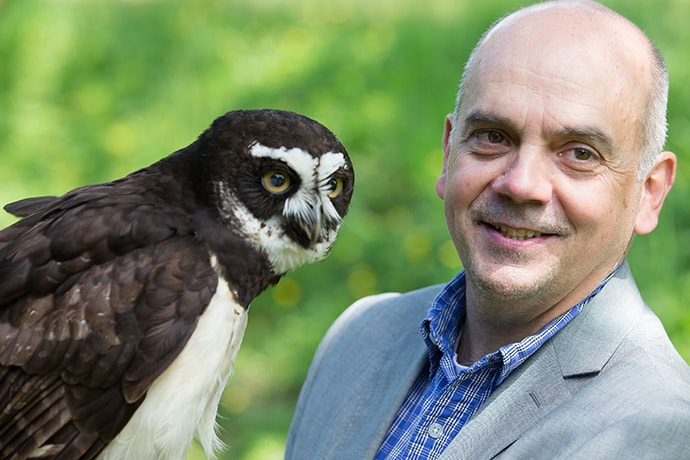
While politicians and celebrities alike routinely rally communities to save the planet, other not-as-obvious, yet incredibly influential forces are already at work: zoos.
Alejandro Grajal knows a thing or two about how zoos can play a role in large-scale conservation efforts. He was in graduate school, finishing a PhD in zoology from the University of Florida, during the conservation biology movement of the 1980s, and he has been invested in its progress and impacts ever since. Grajal, the current CEO and President of the Woodland Park Zoo, believes that conservation efforts ultimately start and end with humans.
“One of the things that has been pretty evident to me from the very beginning is that even though conservation or wildlife conservation is a biological problem, the causes and the solutions are human because extinction and habitat loss and so on are created by humans, but also can be solved by humans,” he said.
Conservation has been at the heart of Grajal’s studies and his professional career. He came to the Woodland Park Zoo in 2016 after beginning his professional life at the Wildlife Conservation Society in New York (which runs the Bronx Zoo) and then leading the Center for Conservation Leadership at the Chicago Zoological Society. He has specialized primarily in field conservation, meaning protecting large areas of habitat and land, primarily in Latin America and the Caribbean. He has also published numerous articles and conducted research on conservation for most of his career.
Zoos play a vital role in conservation efforts globally. Grajal’s work not only at the Woodland Park Zoo but also as a board member for the Association of Zoos and Aquariums (AZA), which accredits all zoos and aquariums in North America and abroad, is conservation-focused. In fact, Grajal says they are the second largest source of funding to international conservation efforts worldwide. According to the AZA, the 230 zoos and aquariums in the association have donated over $1 billion in funds to field conservation in the past five years.
About 8 percent of the zoo’s annual budget is spent on international conservation, Grajal said. The Woodland Park Zoo has nearly 20 conservation flagship projects that involve multi-decade investments in field conservation in places as far away as Papua New Guinea and as close as the North Cascades.
In addition to investment, which Grajal says is the most significant way zoos play a role in conservation, they also literally play a role in conserving species. Endangered species, or animals that are in danger of going extinct, are often preserved as a result of zoos and aquariums taking in those animals. Grajal explained that this process is vital to the species’ survival. For example, the Woodland Park Zoo currently has three Malayan tigers. There are only about 200 of these tigers left on earth, and the majority of those left are in zoos. With less than 100 wild Malayan tigers, the ones living in zoos might be the last surviving animals of their kind in a few years.
“The population in zoos and aquariums right now is radically valuable to keep the genetic makeup of the population for the future, because the population in the wild is not thriving,” Grajal said.
The Woodland Park Zoo is AZA-accredited, meaning it could also hold or keep species protected in the association’s program SAFE (Saving Animals From Extinction). SAFE is a global strategy to ensure that endangered species are protected, Grajal said. There are currently 30 SAFE action plans for species, with more in the works.
Conservation efforts taken by outside organizations and even zoos in the U.S. are, in the end, only drops in the bucket, and Grajal recognizes this. And yet, sociological and psychological research conducted at the Woodland Park Zoo to evaluate the visitor experience has led to interesting findings.
“We know for sure that one of the critical elements of the zoo visit is that people have this flow of positive emotions,” Grajal said.
This is in part due to the connections with animals, as well as visiting with loved ones, Grajal said.
“The combination of really strong social brainwork for the visit and the emotions that are driven by the zoo really drive an unusual combination of willingness to act,” Grajal said.
The question is how to turn that positive emotion into action. Or as Grajal says, “How do we get those emotions supercharged so we can drive people towards pro-environmental behaviors?”
While the science and research at Woodland Park Zoo shows the zoo visit can lead to a powerful emotive experience, visiting the zoo only lasts four to five hours at most. To keep that positive emotive experience, Grajal said, the zoo’s social media investment aims to create more opportunities for people to engage in conservation.
The organization currently has 54,500 followers on Instagram and more than 32 million views on its Youtube channel. In addition, its website address is literally zoo.org, which doesn’t hurt the organization’s online search rankings.
Ultimately, Grajal said all this content points to what needs to happen to actually conserve the planet and our shared environment: consumers changing their behaviors.
“We try to keep the fun and family and hopeful message of coming to the zoo, while at the same time creating opportunities for people to engage in conservation, mostly by taking specific consumer positions such as composting, recycling or buying sustainable seafood products, or eliminating single-use plastics from your life,” Grajal said.
The zoo can leverage its substantial social media following when the environment is threatened by policy proposals, as well. For example, The Woodland Park Zoo sent more than 10,000 signatures as a part of a petition to Congress when the Trump Administration attempted to change the Endangered Species Act. Grajal expects to grow the zoo’s role as part of a larger social movement towards conservation.
“I believe that one of the challenges we face in terms of conservation is the support of the public, regardless of their political ideology or their socioeconomic status. It’s been for a while that conservation has kind of morphed into or been pigeon-holed into this kind of white, middle class values ideal, but the reality is that conservation and the conservation of wildlife affects everybody, rich and poor, different cultures, different languages,” he said.
By engaging zoo visitors and contributing to a wider social movement towards conservation, the zoo also plans to continue to measure its impact and see if social responsibility grows. Ultimately, the health and survival of all is at stake.
“It’s really important that people understand that their actions and everyday decisions have global implications,” Grajal said. “And all those things (like eliminating single-use plastic) look very flimsy, very small when you do them by yourself, but the reality is that if you get millions joining it, you have a significant impact. You drive corporations and businesses to make responsible decisions, and then we have positive feedback in which both consumers and providers and policy all move in the right direction.”
Welcome New Members
Please welcome our newest Global Washington members. Take a moment to familiarize yourself with their work and consider opportunities for support and collaboration!
Philanthropy Northwest
Philanthropy Northwest is the network for philanthropists of all types who are committed to Alaska, Idaho, Montana, Oregon, Washington and Wyoming. We promote, facilitate and drive collaborative action by community investors to build resilient, equitable and inclusive communities. philanthropynw.org
PwC
PwC helps resolve complex issues and identifies opportunities. PwC bring a global perspective along with in-depth knowledge of local, state and US issues, and focus on audit and assurance, tax and consulting services. Additionally, in the US, PwC concentrates on 16 key industries and provides targeted services that include — but are not limited to — human resources, deals, forensics, and consulting services. PwC’s reputation lies in building lasting relationships with clients and focusing on delivering value in all they do. pwc.com
Member Events
June 20: International Rescue Committee // ARTvocacy 2019: World Refugee Day Celebration
June 25: Woodland Park Zoo // Women in Conservation: Saving Local Species at Woodland Park Zoo
Career Center
Staff Accountant, Bloodworks Northwest
Grants Specialist, International Rescue Committee
Fall, Spring Law Student Internships, Northwest Immigrant Rights Project
Associate, Community Engagement, UNICEF USA
Manager, Finance & Accounting, Vulcan Inc.
Check out the GlobalWA Job Board for the latest openings.
GlobalWA Events
June 20: Final Mile Disaster Response: Amazon’s Community Engagement
Global Leadership Forum
New Fall 2019 Cohorts Forming
Gain practical strategies to advance your organization. Learn alongside a trusted community of leaders of global NGOs and nonprofits, foundations and related organizations, who are dedicated to their work and to each other.
Information and Orientation Sessions
Tuesday, June 18, 9:00 – 10:00am
Wednesday, June 26, 1:00 – 2:00pm
To attend an info session or learn more email rakow.bernier@gmail.com or call 206-250-6383.